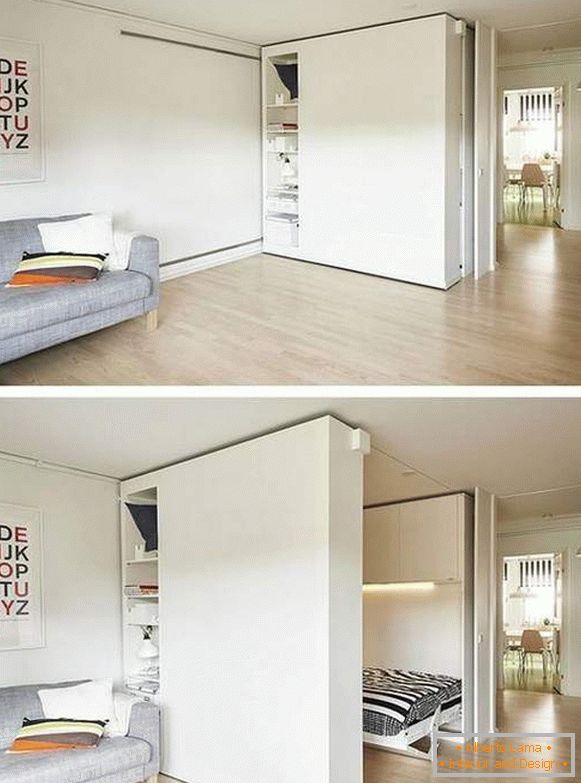What is important for a sound designer to know, what is the feature of interactive audio, what is it like working with a person who made sounds for the Matrix, where to get the "Holy Grail" of a sound designer and how can a profession change a life? The audio director of one very large company told about this and many other things specially for our community on condition of anonymity.
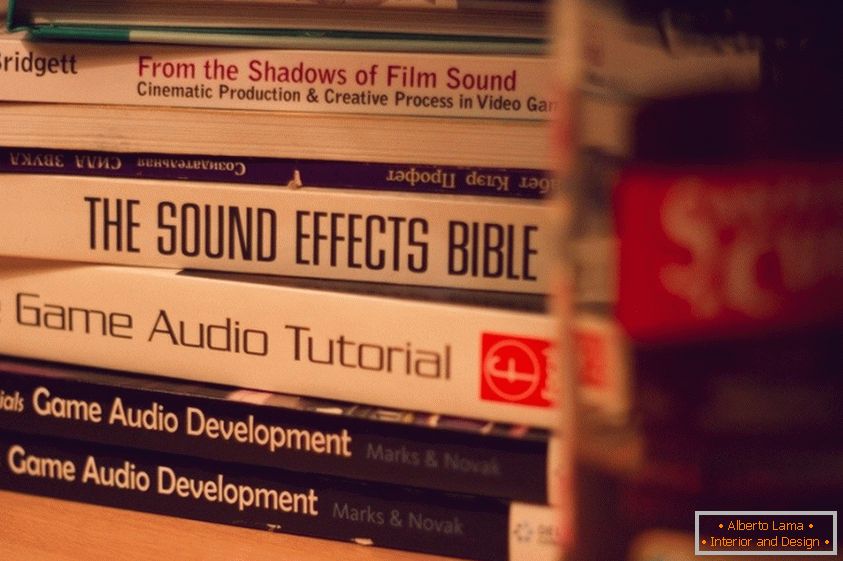
Q: For starters, what is "sound design", about which so many people have been talking about lately?
A: Let's immediately identify with different directions. There is a musical sound design - it is the creation of unique timbres, by making various presets for synthesizers or creating custom acoustic instruments. If anyone is interested - I recommend watching a video of Diego Stocco. He is very fond of experimenting in this direction. One of his Experibass tools was even used by Hansem Zimmer when creating the soundtrack for Sherlock Holmes.
Sound Design for Visual Media is the creation of sound effects for an audiovisual work (whether it's a film, a movie or a game). Development of a common style of sound.
The sound designer must necessarily work in constant contact with people who draw the concepts that created visual effects, script writers. It is necessary to find out the nature of this or that creature or mechanism. Find out the power source of the ship, the daily ration and behavior of an unknown animal and emphasize it with the help of sound. The main thing is not to mix up the cutting of library sounds under video and sound design :) The cutting of sound libraries is comparable to the boiling of purchased pelmeni. In extreme cases, and this will come down, but the specialist in cooking pelmeni you chef never call and Michelin stars do not shine to him.
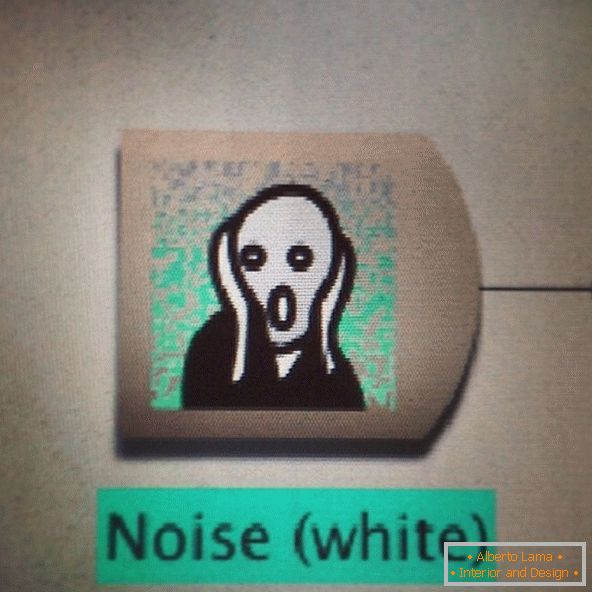
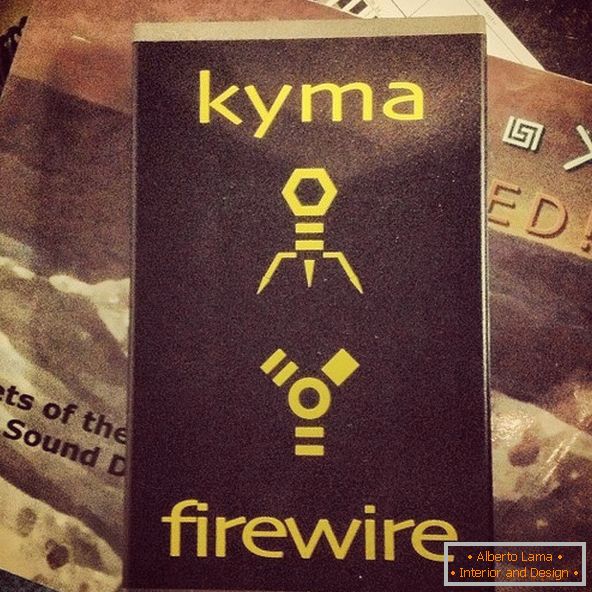
Q: The first and most important question that worries those who are at the beginning of the journey: what is important to know the sound designer and what skills should he have?
A: Like any professional sound engineer or musician, a sound designer must have a good ear (both musical and simply not have physiological defects), he must be plodding (sometimes in pursuit of an interesting sound you can sit for hours without producing unnecessary sounds in an uncomfortable position, sending the microphone to some animal that has just issued an unusual sound, in the hope that it will do it again), it should work very well for the imagination, since you often have to think out how to sound like things forward's reference that we find in the real world. For example, magic or some high-tech mechanisms. Understand in psychoacoustics, in order to take into account when creating the sound series the features of human hearing and to realize the influence of sound on the condition of the listener. And of course a person should have a profile or even a higher technical education behind him to understand the physics of sound, to have the skills of reverse engineering, etc. In general, in this profession, without good technical training, it will not be possible to reach significant career heights.
In my opinion, a good sound designer should be born an audial, i.e. from childhood to perceive the world around by means of hearing. Of course, this can be developed in conscious age, but if a person listens to his life from the earliest age, he accumulates a lot of interesting auditory memory anchors that will be useful in the work.
Q: Recently I very often see the resumes of young composers who offer sound design services. How does this relate to the industry?
A: Guys, do not think that if you write good music and know how to twist a couple of synthesizers - you automatically become a sound designer. It's not like that at all. Sound design is a separate area that you need to comprehend for a long time. There are a lot of subtleties here and specialized knowledge about physics, about processing devices, psychoacoustics, etc. is very important. It is better to develop in the direction in which you are already good, rather than grasp everything at once and do not succeed anywhere.
For example, highly specialized specialists are valued in the West. And extremely rarely on projects composer and sound designer is one person. I have been at various sound conferences in the USA many times and witnessed how the young guys brought their famous showers to the famous professionals, where there was music and various sound effects. Almost immediately they were asked to stop the playback and the next time before showing anything - to ask yourself who they see themselves in the future and in what area they want to be the best, in writing music or in sound design. Of course, no one canceled the hobby, but to become a real professional - you need to decide.
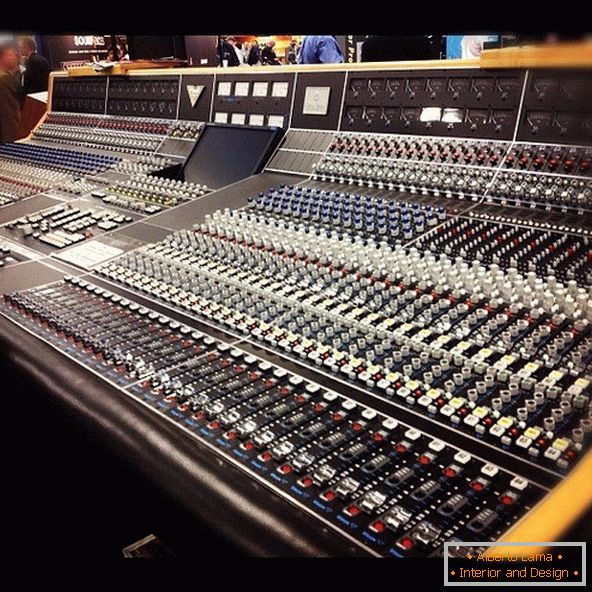
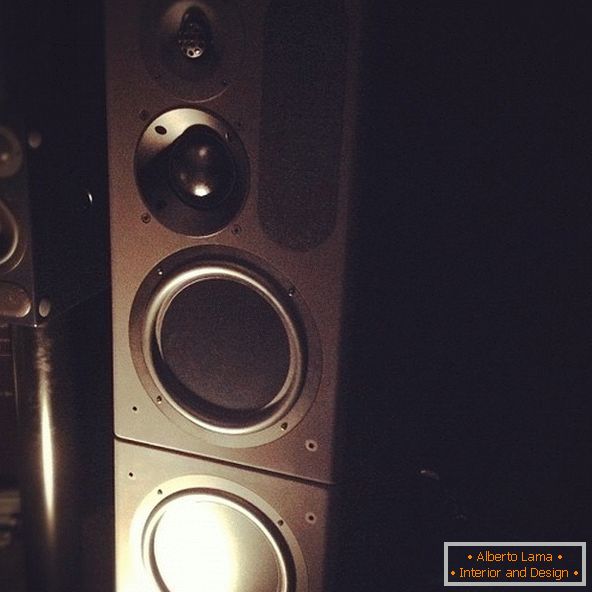
Q: How did you come into the profession?
A: This is a very interesting question. I graduated from music school and to the tenth grade of the school was puzzled by the choice of a profession that would meet my interests. And I was interested in the psychology of man, music and cinema. My father first gave me the idea of trying to become a sound engineer, for which I am very grateful. It was he who planted this idea into me, after which I dismissed all possible options, and insistently decided to enter VGIK. Enrolled from the first time on the budget. It is a pity that my father did not live to get a diploma.
Q: Why did I decide to go to the gaming industry after the movie?
A: In parallel with the studies, I persevered in self-education, ran to various studios, worked at night literally from the first year. The whirlpool of sound so tightened me that there was no turning back. On the way to study in the subway, I read many books on the synthesis of sound, sound drama, listening to interviews and podcasts of the guru of the film industry. I was always addicted to games and began to wonder how they make the sound for them. At the same time, it was not so much the creation of the sound asses themselves, Here everything was more or less clear, how much implementation is the process of "introducing" sound into the game. It was very interesting - exactly how the sound is processed, what events are attached to, how reverberation works, by what principle the collision (for example walls, boxes) cuts certain frequencies of sounds, etc. I began to look in this direction and realized that the sound design for games is a level-up after the cinematography both in creative terms (here and sci-fi settings, and unprecedented little animals, and spacecraft - there is where to clear up), and in terms of production technologies and sound implementation.
Q: What are the main differences between cinema and games?
A: Usually all the lectures on Game Audio 101 start with an answer to this question :) Movies, advertising, animation - this is linear media. We have a timeline to which all events are tied: sounds, effects, editing glues. Every sound lives exactly as long as it lasts. Music and editing represent a single whole (if there is no author's idea to make a counterpoint). And in the case of the game, no matter how linear it was, we get a sandbox. The player is free to do what he wants. A huge inscription on the screen says - "Run along the corridor!", And he turns around and starts to shoot his name on the wall with shots. The game is - it's almost a universe with its rules. And everything should be like life. I made an action - there was a sound. But what sounds will fill this world is already in the power of the sound designer.
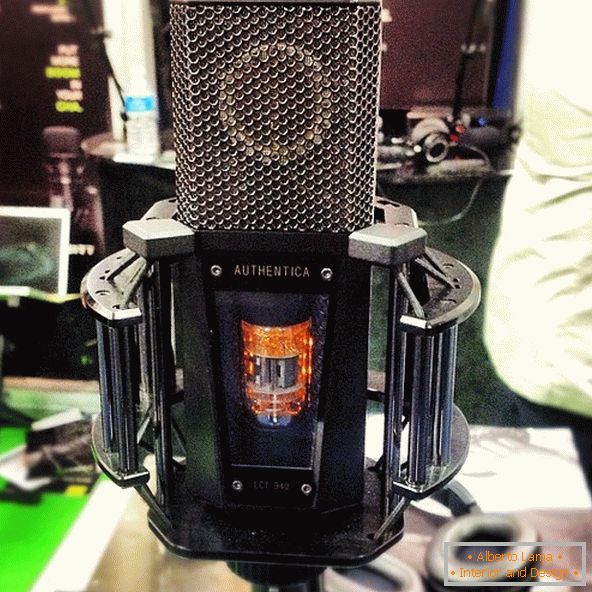
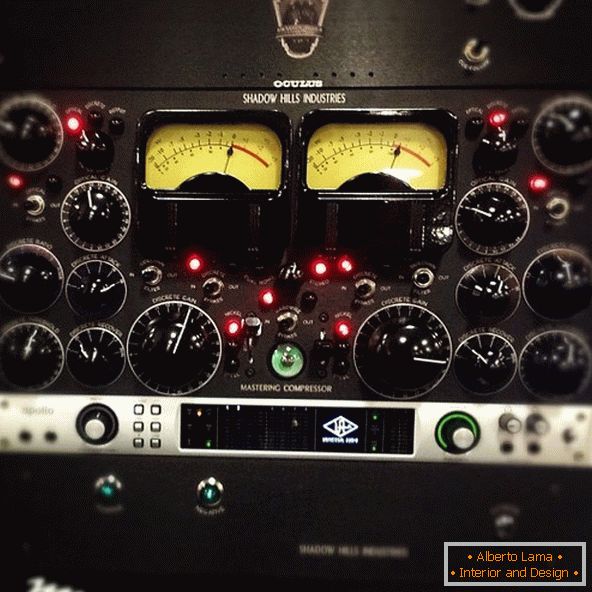
Q: What difficulties did I face when I entered the gaming industry?
A: The first difficulty with which I encountered in the transition from cinematography to games - you can not make the sounds too juicy and bright. In the movie, you try to "pump out" the hall on the contrary, then you can not let the sound bother and discomfort the player. And, most importantly, there should be no repeatability. You can not take, for example, 1 step sound and constantly reproduce it - the player will go mad with the repeated sound. You can not in turn take 3-4 step sounds and start them cyclically in the same order. The player immediately hears a pattern that repeats from time to time and it will be unnerving. In addition to creating the sounds themselves, you need to come up with a mechanism for their reproduction. If everything is done correctly and include ingenuity, then even the trained ear will not notice that they are constantly playing the same 7-8 sounds. Someone will say "why not take 100 sounds and reproduce them as you like." But do not forget that the amount of memory and the budget for using the CPU are limited. As we can see, there are only complications around the world :) But this is what stirs up interest.
With music, too, it's not so simple. It can be tied to either a location, or run by certain encounters and must be adaptive - i.e., vary depending on the player's actions. In this case, change seamlessly. The easiest way to do this was on old consoles, where the sound chip acted as a synthesizer, to which the game sent commands with information on pitch, the length of the note and the combination of the settings of the sound generators and filters. Now you have to come up with complex node systems, so that the music loops switch exactly in bpm when changing certain parameters. And at the same time that the composition does not turn into solid mathematics and does not lose its musical value.
Q: It looks a little more complicated than writing music for the video ...
A: And there's also adaptive mixing. Although you know - this is the whole topic not for the interview, but for a separate master class :)
Q: I catch on the word! And what is it like working with the "mastadons" of the industry? For example, guys who did three parts of the Matrix, Dead Space, Call of Duty, etc?
A: You know, sometimes it's much easier than with compatriots. At first, it surprises and pleases the complete absence of pathos in these people. They immediately begin to be added to your facebook, communicate and joke. At the same time, the work is done very quickly and qualitatively. Always ready to admit their mistakes, which is an undoubted plus. And do not be afraid to experiment and redo your work. They gladly share their experience and various tricks, not being afraid that they will steal their magic button "make cool", and in turn they do not hesitate to ask the younger specialists if they like something from their work. Always open to new knowledge - and this, I believe, we need to learn from them. Even if you have achieved something, earned a name for yourself - do not stop at all in development and do not think that from the height of your pedestal you should not ask something from beginners. On the contrary - and you know the knowledge in a coin box, and the person will rejoice. "Wow! The Guru himself asked me something! AAAA !!! ":)
Q: What programs do you use in your work?
A: I knew that there would be this question. I will not list everything that I have ever used, I will only talk about what I have now installed and what I use every day. Everything is pretty trite: Pro Tools with a set of plug-ins Waves Sound Designer Suite, GRM Tools, Absynth, Massive, Sound Forge for various batch processes.
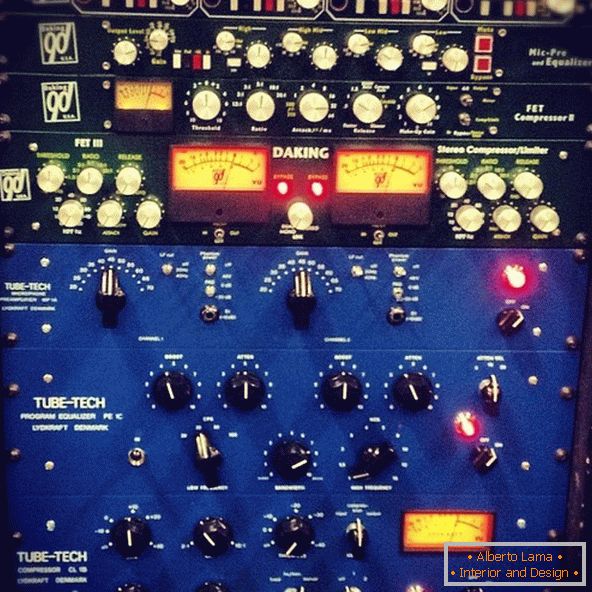
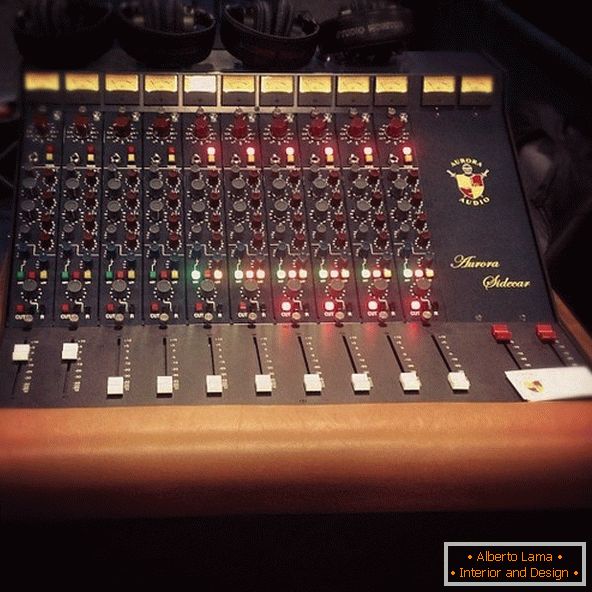
Q: What lies in your backpack?
A: Headphones, a windproof recorder, a guitar pickup, a note pad and a mandarin :)
Q: Do you always carry a recorder with you?
A: Yes, even in a dream I keep nearby. You will not believe it, but sometimes you hear such interesting sounds from the street that you run headlong to the window to write down at least some fragmentary.
Q: What's the most unusual sound you recorded?
A: An unusual sound ... Well, here are a couple of fresh examples. The first is the electromagnetic background from my very first monitor, recorded with a guitar pickup. It turned out an excellent tonal force field. The second was recorded in one skyscraper, on the stairs. Railings on all floors are welded into a single structure. I glued the 2 pin microphones on the topmost floor, turned on the recording and started to go down to different floors, tapping on the railing and shaking them in every possible way. Great impacts and lingering creaks were obtained, worthy of a huge space ship or a giant plant for the production of robots.
Q: Is there a Holy Grail in the profession?
A: What many want to have, but the secrets are revealed to the units? There is, there is :) Though it's not really the Grail :) You know, sometimes you just rest on the fact that you do not have enough of the features of your favorite plug-in. And when I say this, I do not mean pointless (or meaningful) digging in the presets. I'm talking about the fact that you studied the tool / device thoroughly. I learned all its features, tried all possible switching options, developed my own techniques of handling it. And now, one fine moment, once again unscrewing another sound, you realize that you've come to a standstill. And you want to try something new. Here, modular systems such as Kyma X come to the rescue. They do not drive you into the framework, but, on the contrary, encourage you to experiment all the time. You start to think quite differently. All the textures cease to be just timbre for you. They become blocks, combining which you can get something new. Each sound received is just a waveform that can modulate another sound. Or to manage some parameter. And you are plunging deeper and deeper.
Someone will ask - but why Kima? There are also a lot of modular systems - Max / MSP, Reaktor, Csound, PureData, etc. Yes there is. And I quite successfully worked with them. Their only common feature is the nodes. In general, Kim is much deeper. Analogues to its algorithms for spectral morphing simply do not exist. But it is more complicated. Much. You need to spend at least a year to start understanding the basics. There are several templates that help you learn the basics. But then we have to investigate everything ourselves. The number of users around the world can be counted on the fingers. I certainly exaggerate, but the community is very small. Another important point is money. Pleasure is not cheap. And if something happens - sending to the US will also be a pretty penny. Considering all these factors, I pondered for a very long time - am I willing to invest so much time and money in something that can never bring me any profit other than self-development? Already in the process of training, I blamed myself for this decision many times. But now, after a while, I can say that I do not regret at all. Although I have so far only "scratched the surface." The rabbit hole is incredibly deep. But I like to fall into it. :)
Q: How has your profession changed your life?
A: She made me happy. And this I consider the most important thing. Well, a little patted my pocket - tk. constantly have to buy some new specialized microphones, synthesizers, update the software. But every time you feel like a child on New Year's Eve.



